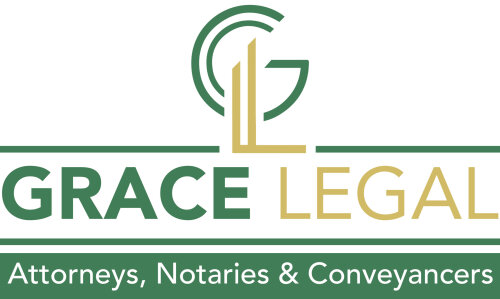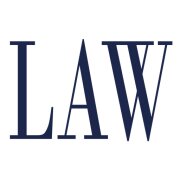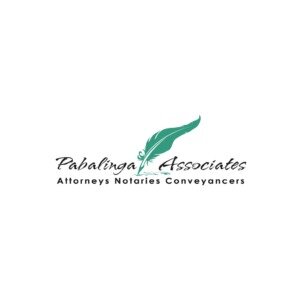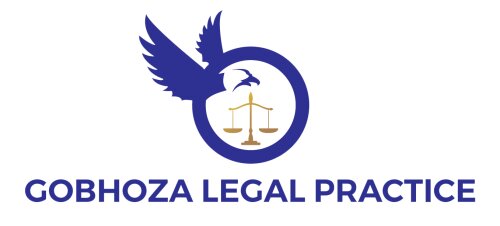Best Structured Finance Lawyers in Botswana
Share your needs with us, get contacted by law firms.
Free. Takes 2 min.
Or refine your search by selecting a city:
List of the best lawyers in Botswana
About Structured Finance Law in Botswana
Structured Finance in Botswana refers to a broad range of complex financial transactions that are typically used by corporations, financial institutions, and public entities to raise capital, manage risk, and facilitate investment. These transactions commonly involve the pooling of financial assets, such as loans, receivables, or leases, and the issuance of securities backed by those assets. Examples include securitisation, asset-backed securities, syndicated loans, and project financing. Structured Finance in Botswana has gained importance as the country expands its financial and investment markets, particularly in sectors such as mining, real estate, and infrastructure development. The legal framework surrounding these transactions is intricate, requiring in-depth knowledge of regulations, contract law, and financial instruments.
Why You May Need a Lawyer
Engaging in Structured Finance dealings involves significant financial commitments and legal obligations. People or organizations may require legal assistance in the following situations:
- Structuring or negotiating complex financing agreements between multiple parties.
- Understanding compliance requirements under Botswana law, including licensing and regulatory approvals.
- Dealing with cross-border transactions that involve multiple jurisdictions.
- Drafting, reviewing, or negotiating contracts related to securitisation, asset-backed securities, or syndicated loans.
- Managing risk through credit enhancement or participating in derivative transactions.
- Advising on the tax implications of structured finance deals.
- Facilitating the transfer or sale of financial assets.
- Addressing disputes or enforcement issues that arise from default or breach of agreement.
Given the complexity of these transactions and their strict regulatory environment, a lawyer helps ensure that interests are protected, obligations are clear, and deals are legally sound.
Local Laws Overview
Botswana’s structured finance framework is influenced by national statutes, regulations set by the Bank of Botswana, and international market standards. Key elements include:
- Banking and Financial Institutions Act: Sets out licensing and operational requirements for financial institutions that often participate in structured finance transactions.
- Companies Act: Governs the formation, operation, and obligations of companies involved in structured transactions.
- Secured Transactions Act: Regulates how security interests are created, perfected, and enforced over financial assets.
- Securities Act and Botswana Stock Exchange Regulations: Oversees public issuance of securities, disclosure obligations, and market conduct in securities transactions.
- Insolvency and Bankruptcy laws: Address creditor rights and priorities if a company involved in a structured finance deal becomes insolvent.
- Tax Legislation: Deals with stamp duty, withholding tax, VAT, and other implications arising from financial transactions.
- Anti-Money Laundering regulations: Impose compliance obligations for entities to report and prevent suspicious activities.
The evolving regulatory environment occasionally adopts changes inspired by global trends to maintain market stability and encourage investment while safeguarding stakeholders.
Frequently Asked Questions
What is structured finance, and how does it differ from traditional finance?
Structured finance involves complex financial products and transactions designed to meet specific needs that cannot be addressed by conventional loans or bonds. Unlike traditional finance, structured finance customizes agreements and often involves multiple parties, securitisation of assets, and advanced risk-sharing mechanisms.
Who participates in structured finance transactions in Botswana?
Common participants include banks, corporates, asset managers, government entities, and occasionally international investors. Specialized service providers such as lawyers and accountants are also closely involved.
Is securitisation allowed in Botswana?
Yes, securitisation is permitted under Botswana law, provided parties comply with relevant statutes and regulatory requirements imposed by authorities such as the Bank of Botswana and the Botswana Stock Exchange.
What types of assets can be securitised in Botswana?
Typical assets include mortgage loans, auto loans, commercial receivables, lease payments, and other predictable cash flows that generate income over time.
Are there any restrictions on foreign participation in structured finance deals?
Foreign entities can participate in Botswana’s structured finance market, but they must comply with exchange control regulations, sector-specific investment rules, and any applicable licensing requirements.
How are default and insolvency handled in structured finance?
Botswana’s insolvency framework outlines procedures for handling defaults, prioritizing creditor claims, and enforcing security. Legal advice is important to navigate asset recovery and dispute resolution in case of default.
What are the tax implications of structured finance transactions?
Tax consequences vary depending on the structure and parties involved. Transactions may attract stamp duty, VAT, or withholding tax, and it is crucial to seek legal advice to assess liabilities and optimize tax efficiency.
How do anti-money laundering laws affect structured finance deals?
All participants must comply with anti-money laundering and counter-financing of terrorism regulations, including client due diligence and transaction reporting, to prevent abuse of structured products.
What documentation is typically required in a structured finance transaction?
Key documents include facility agreements, security documents, offering circulars or prospectuses, legal opinions, and asset transfer agreements. Detailed documentation ensures legal clarity and risk mitigation.
When should I involve a lawyer in a structured finance transaction?
It is advised to consult a lawyer at the earliest planning stage to ensure regulatory compliance, secure favorable terms, properly manage risk, and address tax or cross-border considerations.
Additional Resources
Helpful resources for information or support related to structured finance in Botswana include:
- Bank of Botswana - The central regulatory authority for banks and financial institutions.
- Botswana Stock Exchange - Oversight for public offerings and securities transactions.
- Non-Bank Financial Institutions Regulatory Authority (NBFIRA) - Regulates non-bank financial services and products.
- Botswana Unified Revenue Service (BURS) - Responsible for tax and customs regulations as they relate to structured transactions.
- Law Society of Botswana - Offers directories to help locate qualified legal practitioners experienced in finance and corporate law.
Next Steps
If you need legal assistance in structured finance:
- Define your objectives and gather all relevant documentation related to your financial needs or proposed transaction.
- Reach out to a lawyer or legal firm experienced in structured finance and corporate law in Botswana.
- Prepare a list of questions or concerns related to your transaction or area of interest.
- Discuss compliance, contract drafting or review, and potential risks with your chosen legal advisor.
- Follow your lawyer’s guidance throughout the process to ensure compliance and secure the most favorable outcomes for your interests.
Early legal advice will not only help prevent complications but also support more efficient, secure, and successful structured finance transactions in Botswana.
Lawzana helps you find the best lawyers and law firms in Botswana through a curated and pre-screened list of qualified legal professionals. Our platform offers rankings and detailed profiles of attorneys and law firms, allowing you to compare based on practice areas, including Structured Finance, experience, and client feedback.
Each profile includes a description of the firm's areas of practice, client reviews, team members and partners, year of establishment, spoken languages, office locations, contact information, social media presence, and any published articles or resources. Most firms on our platform speak English and are experienced in both local and international legal matters.
Get a quote from top-rated law firms in Botswana — quickly, securely, and without unnecessary hassle.
Disclaimer:
The information provided on this page is for general informational purposes only and does not constitute legal advice. While we strive to ensure the accuracy and relevance of the content, legal information may change over time, and interpretations of the law can vary. You should always consult with a qualified legal professional for advice specific to your situation.
We disclaim all liability for actions taken or not taken based on the content of this page. If you believe any information is incorrect or outdated, please contact us, and we will review and update it where appropriate.
Browse structured finance law firms by city in Botswana
Refine your search by selecting a city.















